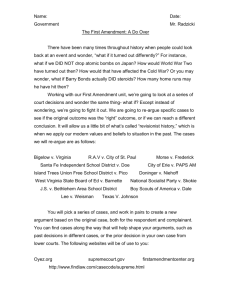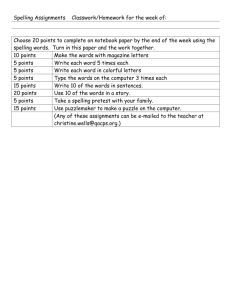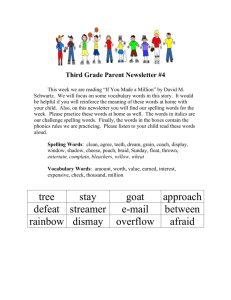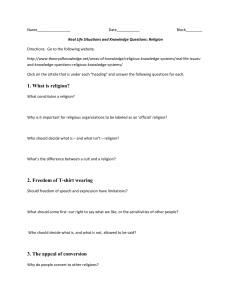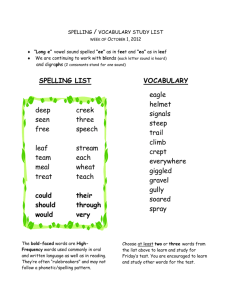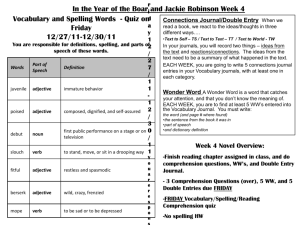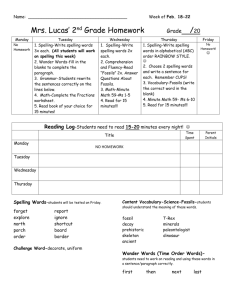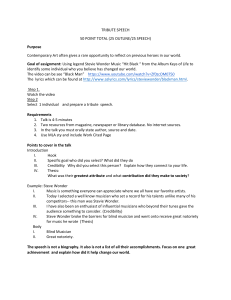FREE WRITING …The idea is simply to write for ten minutes (later
advertisement
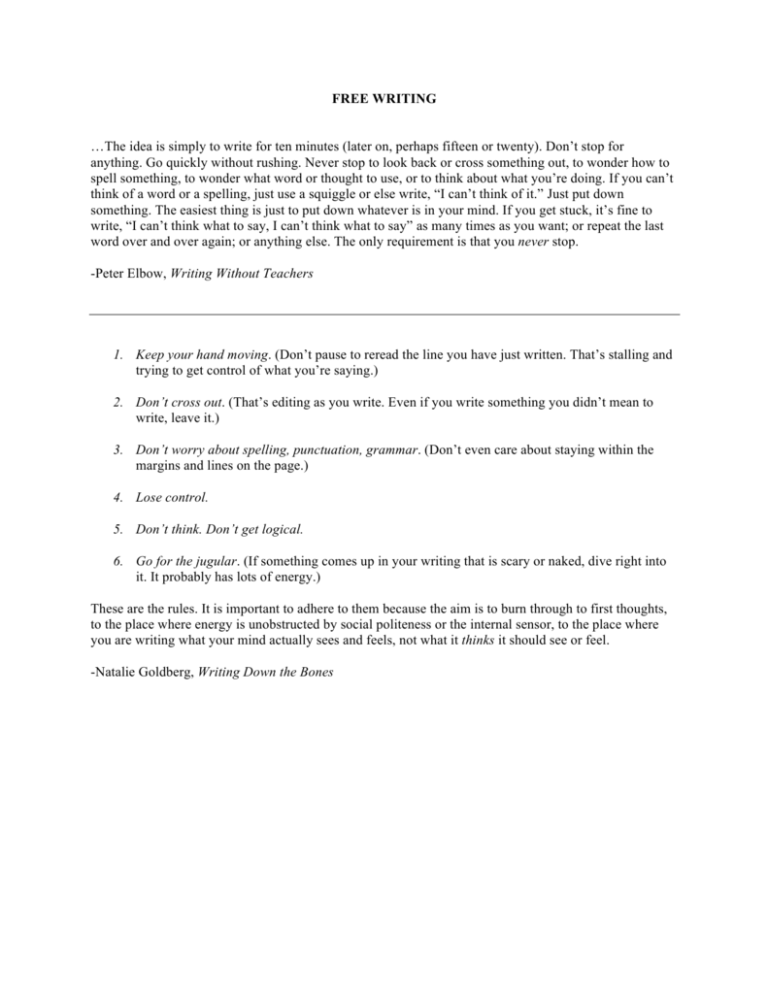
FREE WRITING …The idea is simply to write for ten minutes (later on, perhaps fifteen or twenty). Don’t stop for anything. Go quickly without rushing. Never stop to look back or cross something out, to wonder how to spell something, to wonder what word or thought to use, or to think about what you’re doing. If you can’t think of a word or a spelling, just use a squiggle or else write, “I can’t think of it.” Just put down something. The easiest thing is just to put down whatever is in your mind. If you get stuck, it’s fine to write, “I can’t think what to say, I can’t think what to say” as many times as you want; or repeat the last word over and over again; or anything else. The only requirement is that you never stop. -Peter Elbow, Writing Without Teachers 1. Keep your hand moving. (Don’t pause to reread the line you have just written. That’s stalling and trying to get control of what you’re saying.) 2. Don’t cross out. (That’s editing as you write. Even if you write something you didn’t mean to write, leave it.) 3. Don’t worry about spelling, punctuation, grammar. (Don’t even care about staying within the margins and lines on the page.) 4. Lose control. 5. Don’t think. Don’t get logical. 6. Go for the jugular. (If something comes up in your writing that is scary or naked, dive right into it. It probably has lots of energy.) These are the rules. It is important to adhere to them because the aim is to burn through to first thoughts, to the place where energy is unobstructed by social politeness or the internal sensor, to the place where you are writing what your mind actually sees and feels, not what it thinks it should see or feel. -Natalie Goldberg, Writing Down the Bones



